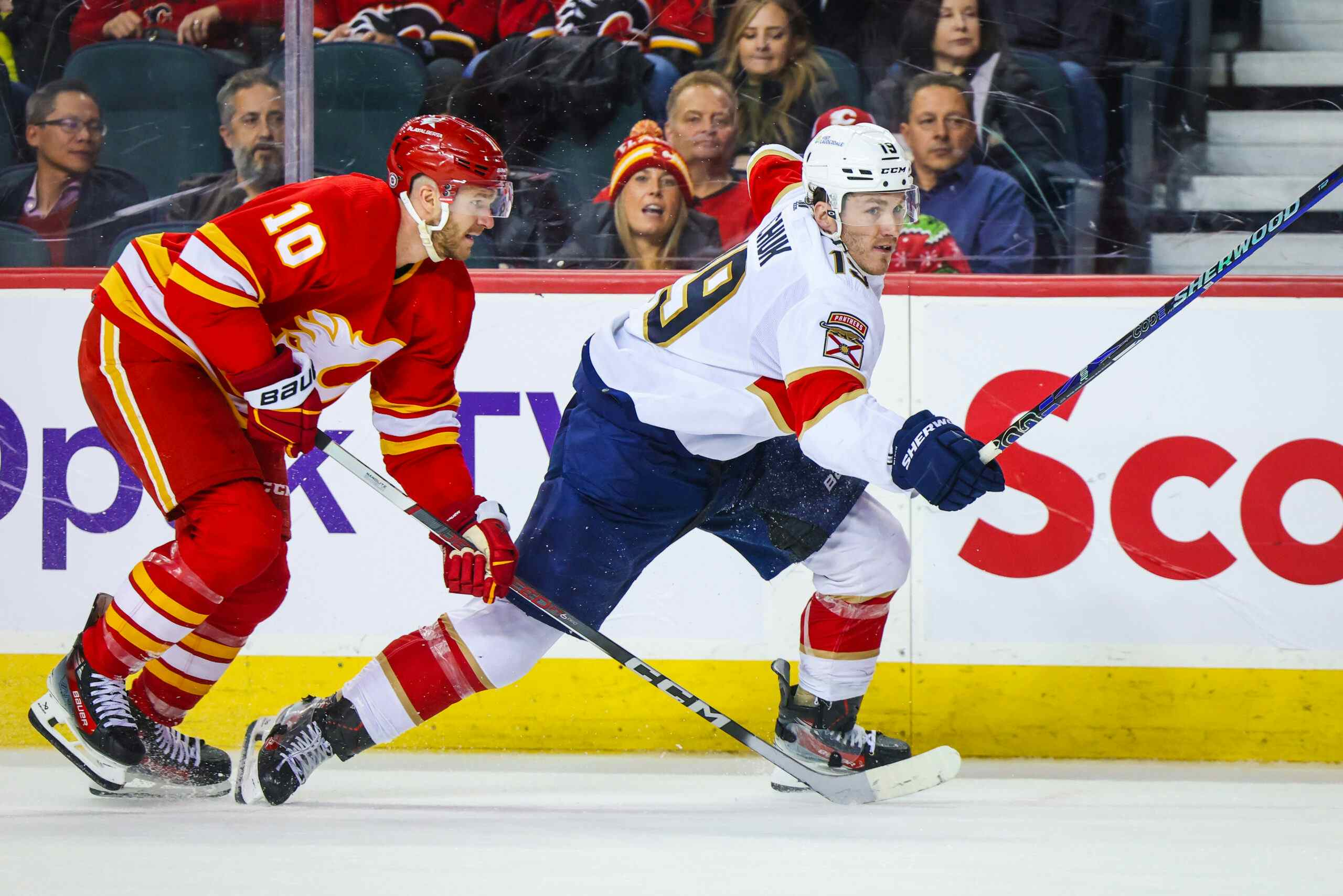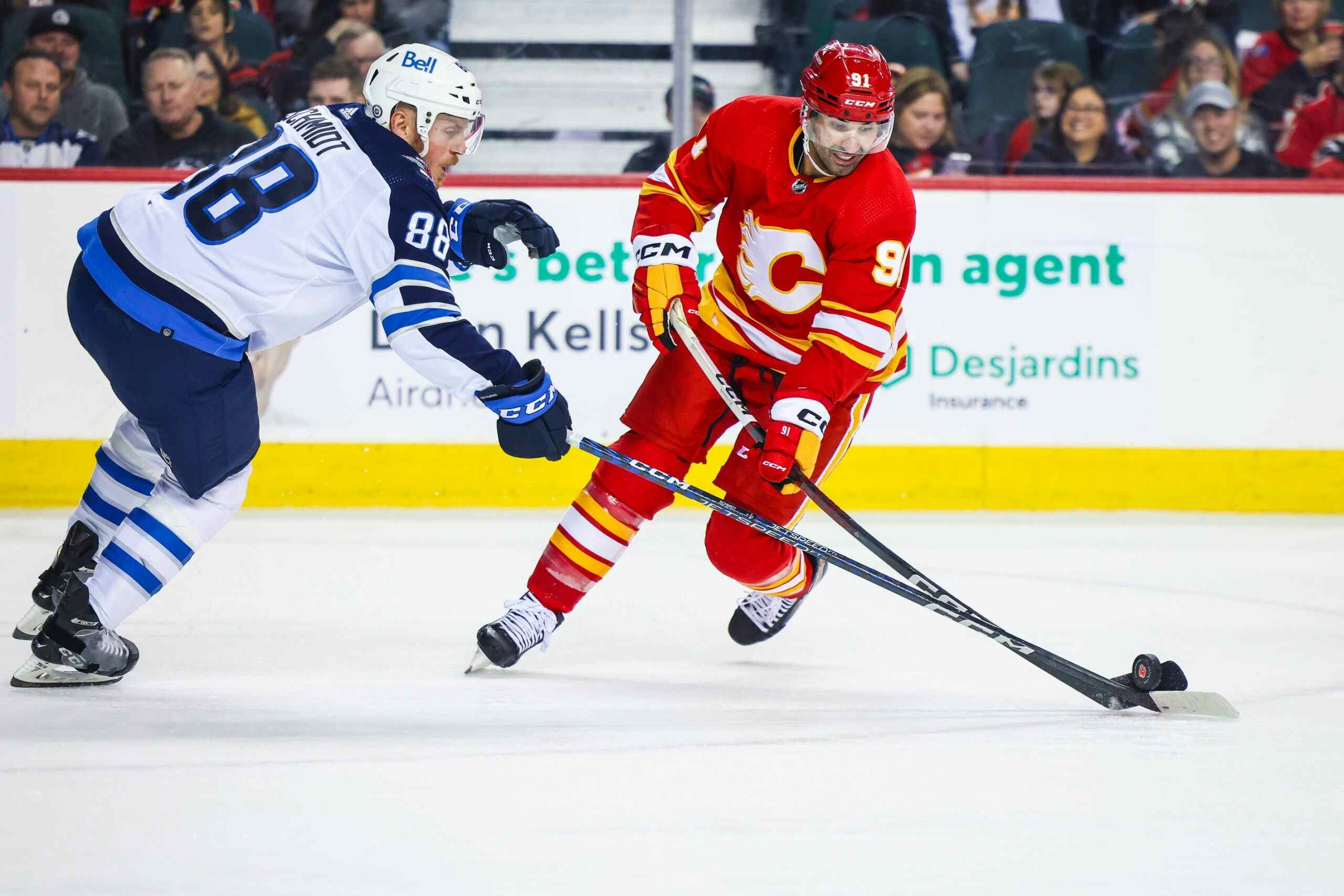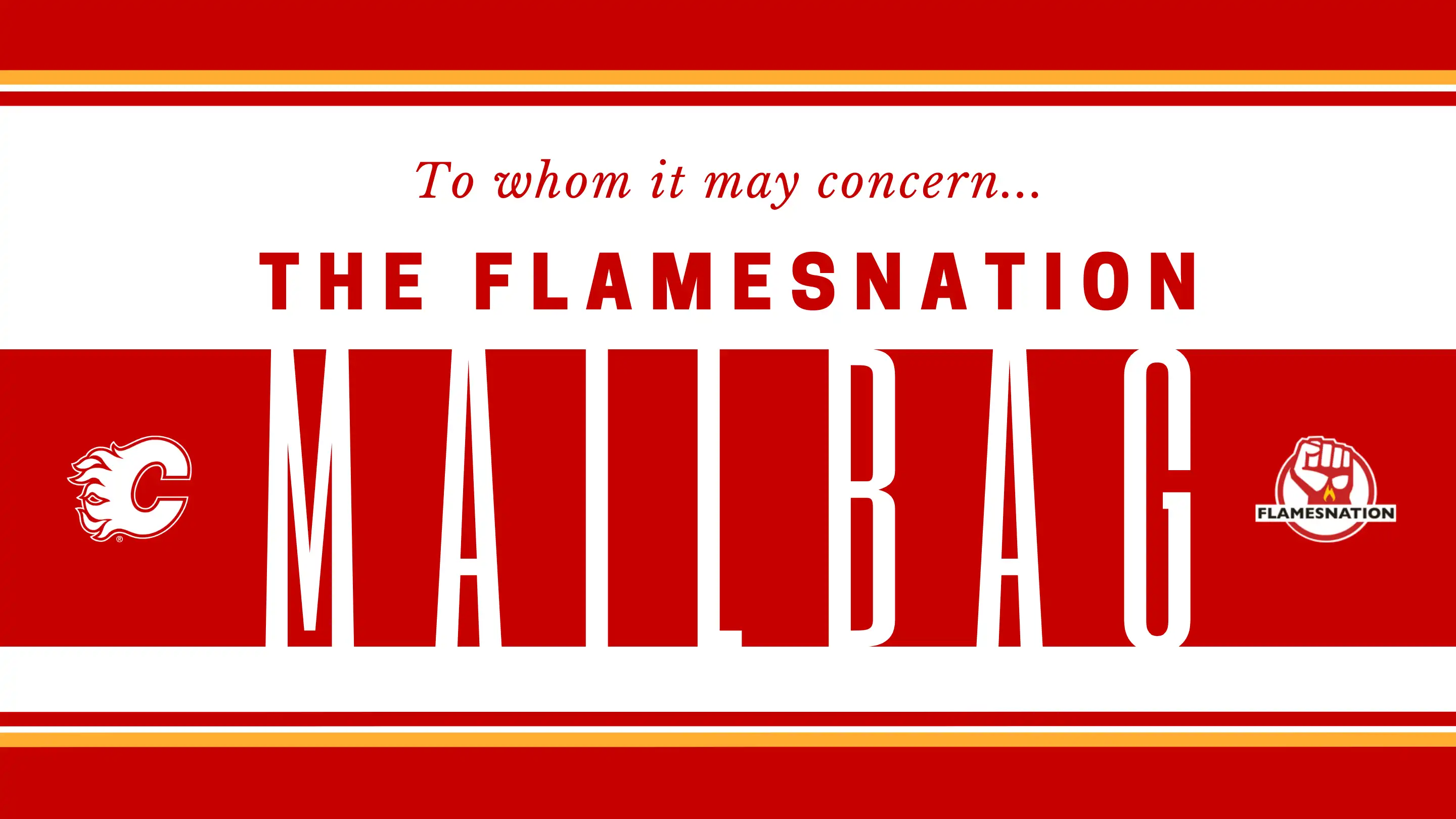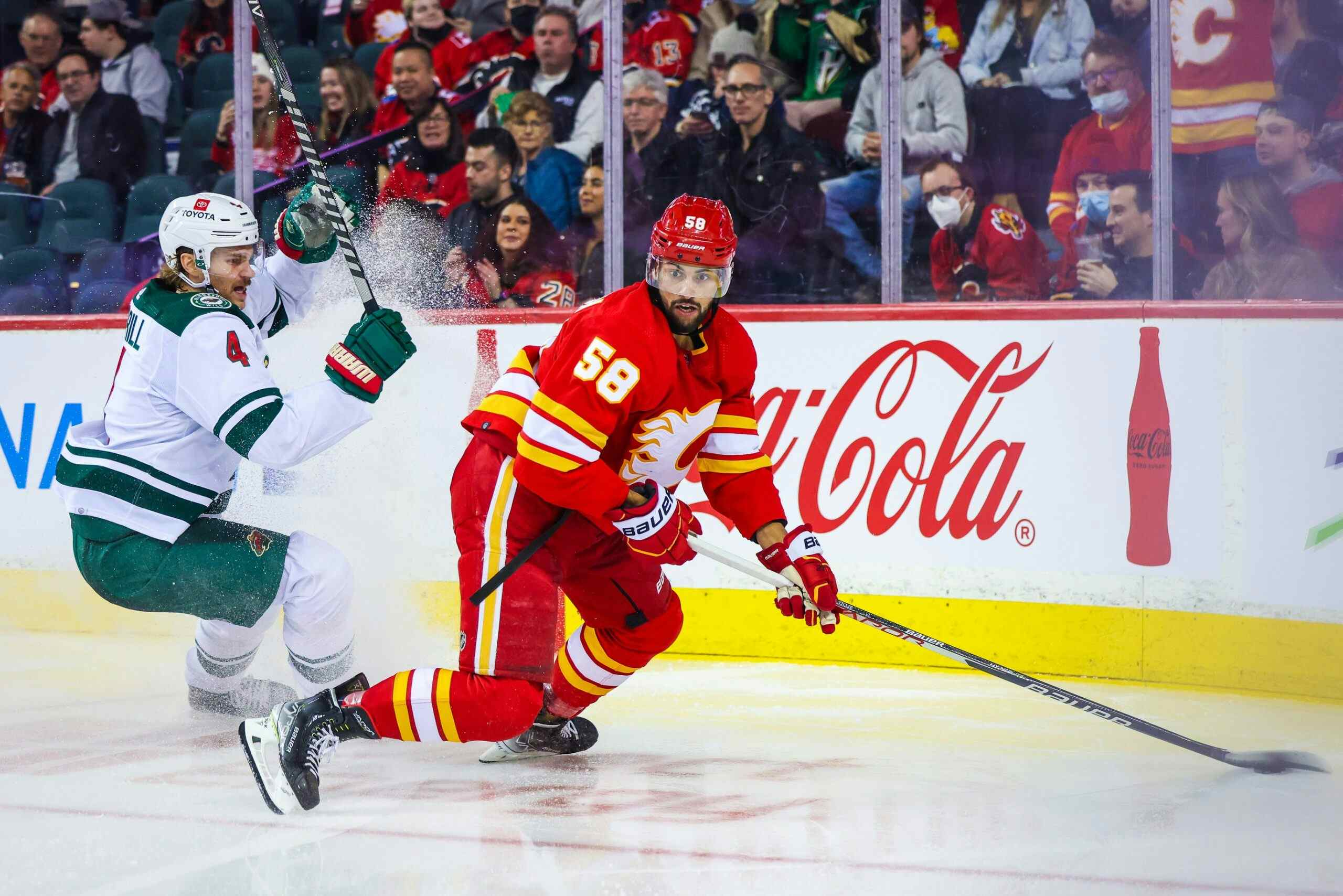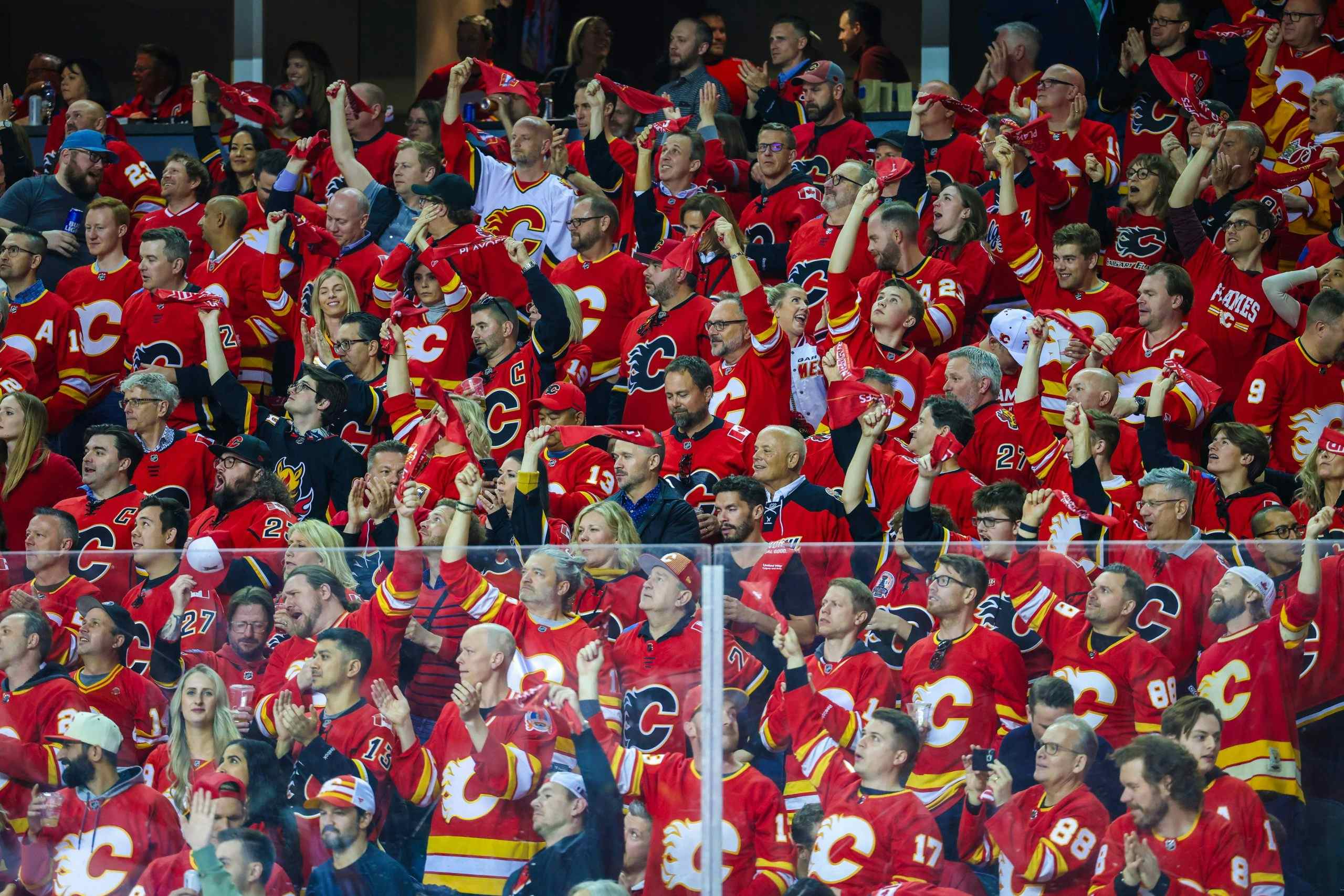Progression of Flames’ confidence was evident in regular season matchups against Avalanche
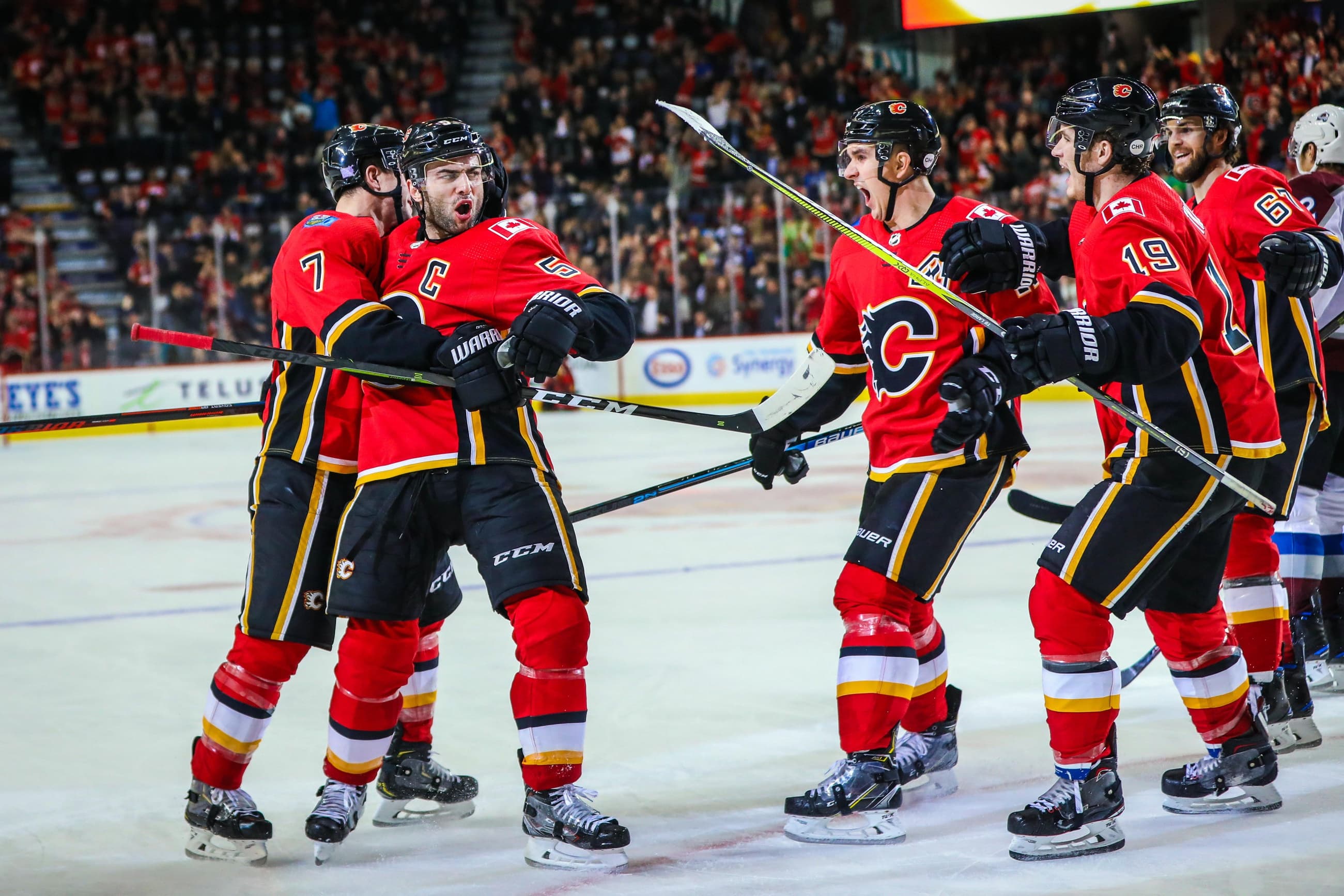
By Ari Yanover
5 years ago Getting to the top spot and clinching first seed was a season-long affair for the Flames: from October until the end of March. They wrapped up their regular season series with the Avalanche back in early January, sweeping them 3-0 and providing them with some of their most memorable of their 50 wins this year.
Game 5, Oct. 13: 3-2 overtime win
Batting just .500 and at the end of one of their first road trips of the year, the Flames could have stood to have a statement win, of sorts. They still needed to prove they weren’t the team that underwhelmed on every single expectation from the previous season; that their active offseason had brought positive, meaningful change.
David Rittich could have asked for a better beginning to the first start of his season: he surrendered two quick goals to the Avalanche, 11 seconds and 2:40 into the game, giving the Flames an early deficit to work with. The team didn’t seem to mind, though, as they recomposed themselves and played as though the game was scoreless: as if they were completely in it, and their bad start wasn’t going to hinder them.
And it didn’t. As they consistently worked to chip away at the multi-goal deficit, about halfway through the game Sam Bennett got his first of the year. And then, with just under two minutes remaining in regulation, Elias Lindholm scored his fourth goal of the season – already taking off with his new team – giving the Flames their first “we came back, we tied it” moment of the new year. Rittich shut the door on the other 24 shots he faced, working back from a poor start and giving the skaters in front of him every chance to tie things up.
It took just 46 seconds in overtime for the Flames to get the victory, an early memorable moment of the season: because the cameras saw Rittich celebrating before Johnny Gaudreau had even gotten the shot off.
The Flames were far from floundering at that stage – the season was young, and they were doing alright – but it felt like a win their previous iteration wouldn’t have been able to pull off. It was an early chance to show off their forward depth, and Rittich ultimately had his first good game of many. But the most important thing: they never once gave up on the game, and that was a theme that followed them throughout the season. It’s just that this year’s team had the talent to make something happen on top of the will.
Game 14, Nov. 1: 6-5 win
Entering the second month of the season, the Flames still seemed unsure if they were a good team or not. They had a 7-5-1 record, and there was an air of caution: they were only a week removed from a brutal 9-1 loss at the hands of the Penguins. Sure, they’d shown improvement by losing their following game in a shootout and winning their next two, but they still needed to get back on track.
And they played well to start, but the second period saw the Flames down 4-1. The Avalanche had gotten two quick goals, and though Mikael Backlund was able to cut their lead in half, the Avs got another two before the period ran out, leaving the Flames with just 20 minutes to overcome a three-goal deficit. But the defence wasn’t great, and Mike Smith was in the midst of his brutal start to the season that put a lot of questions on his position as starter, and it really had only been a week since that 9-1 loss… so, it was over.
And then came five straight goals in the third.
Lindholm scored in the first minute, and Sean Monahan not even five minutes later, and suddenly, the Flames were only down by one. And they kept it up, further overtaking the frame and leaving the Avalanche bewildered: they had played well before, but now, they were getting the goals they needed. James Neal tied it up with just over half a period to go. They didn’t stop there; three minutes later, Mark Giordano took the lead. They didn’t stop there; two minutes later, Michael Frolik added the insurance goal.
Within the span of 15 minutes, the Flames, through their talent and aggression and refusal to take a loss in a game they had played well in, turned a 4-1 deficit into a 6-4 lead. A late powerplay goal by the Avalanche to make it 6-5 only really served to make the last minute a little more intense than it needed to be, but it was set: what was an obvious loss turned into one of the Flames’ most dramatic wins of the year.
The same theme showed up in their second game against Colorado as it had in their first: they were down. They didn’t give up. They tied the game. And they won. It never would have happened with the previous group; for this group, it was part of a six-game win streak that saw them stay at the top of the division.
Game 45, Jan. 9: 5-3 win
By the turn of the calendar year, the Flames were rolling. They were a little shaky coming off of the holiday break – and a little shaky going into it – but they were also winning games while at the top of the Western Conference. Did they have a solid lead over everyone else? No, but they were still ahead, as they would end up being for most of the remaining season: not really expected to be that high up, but there nonetheless.
For once, the Flames jumped out to a 2-0 lead, but the Avs got it back before the first period ended. They also took over on the shot clock, even though the Flames were the only team to score again in the second, making it a 3-2 game. Frolik made it 4-2 in the third, and the Flames looked to be able to coast to victory – though the Avalanche certainly weren’t making it easy on them (or, rather, they weren’t making it easy on Rittich).
They ended up outshooting the Flames 35-16 in what was largely a goaltending win for Calgary, a late Colorado goal making things dramatic before things were cemented with an empty-netter. Rittich earned the win, bailing his teammates out; this was part of a stretch in which the Flames were still winning, though something was a little off about how they were playing. But good teams will find a way to win, and, well, by their third game against the Avalanche, the Flames had already proven to the rest of the NHL they were a good team.
In their first two matchups, the Flames needed dramatic come-from-behind wins in which they faced multi-goal deficits. By their third game, just over halfway through the season and leading the Western Conference, they didn’t need anything particularly heroic to get the two points: they just did.
Game 1, April 11
The playoffs are a whole new season. And it’s worth remembering that even though the Flames finished high above the Avalanche in the standings, Colorado still gave them some fits earlier in the year with their play. But the Flames were always able to overcome them, each and every time, no matter how dire the circumstances – and hopefully, that holds true in the postseason.
Recent articles from Ari Yanover

